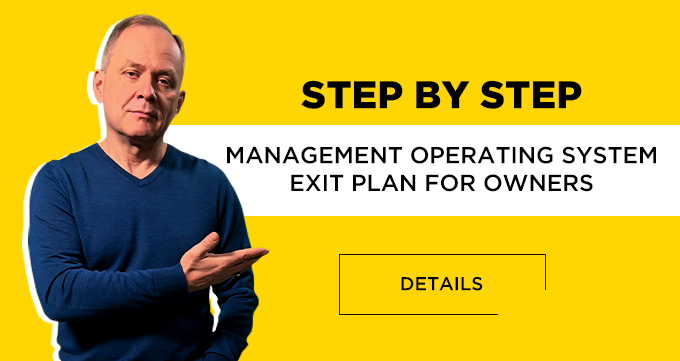What to Do When an Employee Delivers Results but Makes Mistakes
In my many years of business practice, a common situation arises: an employee significantly boosts performance and brings tangible benefits to the company, yet also makes frustrating, sometimes even comical, mistakes. How should a manager handle this? Should you "slap their hands" for every little thing, or turn a blind eye to the blunders for the sake of overall progress?
Both my personal experience and that of giants like Google and Amazon suggest the latter option is often the wiser choice. Why? Let's break it down.
Mistakes are a Natural Part of Growth
The idea of creating a completely error-free work environment is always a fantasy. This is especially true in dynamic fields like sales, marketing, and working with people, where you have to experiment and make decisions under uncertainty. In reality, every field has room for trial and, consequently, error.
Google, for example, champions the principle of "psychological safety." Employees are encouraged to propose bold ideas and test new approaches without fearing punishment for failure. Research from Harvard Business School confirms that in teams with a high level of psychological safety, innovation is adopted much faster. Mistakes are seen not as a reason for public reprimand, but as a valuable source of knowledge and experience.
Why Direction Matters and Why Punishment Is Often Useless
Imagine a beginner athlete. In their first training sessions, they might fall awkwardly or perform exercises incorrectly. But if you see their determination and desire to improve with each session, would you stop them for every minor flaw? You'd likely focus on their progress, support their ambition, and help them refine their technique.
It’s the same in business. If an employee is showing stable and significant growth in key metrics, their contribution to the team's overall success is clear, and their mistakes are not critical or causing serious losses, then nitpicking and penalizing them can be counterproductive.
Take Amazon as an example. In its early days, the company faced numerous operational issues like delivery delays, website errors, and inventory inaccuracies. But Jeff Bezos, a visionary leader, valued his employees primarily on their ability to achieve long-term goals. He understood that you can fix processes faster than you can find and cultivate another motivated and promising employee.
At Toyota, mistakes are treated as opportunities for improvement, not as grounds for punishment. The company carefully analyzes the causes of problems, fixes systemic flaws, and trains employees on the correct actions. This approach maintains high motivation and prevents errors from recurring.
I once had a young sales manager who, at the end of the year, had increased the company's revenue by nearly 40%. At the same time, he consistently mixed up reports and missed document deadlines. I periodically felt the urge to punish him to enforce order. But I stopped myself and instead assigned him an experienced assistant who could handle the paperwork, allowing him to focus on what he did best: sales and negotiation. Two years later, that person became one of the company's key top managers. If I had punished him for his mistakes back then, we probably would have lost him.
Of course, it’s important to distinguish true growth from formal growth. If metrics have increased by a minuscule fraction while significantly lagging behind the norm, that’s not a reason for praise. But if the dynamic is obvious and the errors are more random than systemic, it's much wiser to focus on training and developing the employee's strengths.
Fines, reprimands, and other punitive measures rarely lead to the desired long-term results. More often, they cause resentment, a sense of injustice, and, consequently, a drop in motivation and engagement. The employee starts to fear taking initiative and experimenting, which means they stop growing.
What Should a Manager Do? Three Key Steps
- Support successful practices
Analyze which of the employee's actions and approaches are yielding the best results. Help them scale these successful practices by providing the necessary resources and support.
- Develop areas for growth
Often, minor mistakes arise from a lack of experience, knowledge, or skills in specific areas. Offer the employee training, send them to specialized courses, or assign an experienced mentor. Investing in development always pays off.
- Act thoughtfully
Avoid harsh and demotivating punishments. Focus on gradual improvement, give constructive feedback, and help the employee analyze their own mistakes and find ways to fix them.
Value Sustainable Progress
Instead of striving for unattainable perfection, focus on supporting growth, developing potential, and creating an environment where mistakes are seen as part of the path to success. This approach will bring much more to your company.
Employees who demonstrate consistent and predictable growth are a valuable strategic asset for any company. Their presence allows for planning, synchronizing team efforts, and confidently forecasting revenue. Losing such a person over minor errors is equivalent to a lost long-term benefit.
It’s especially frustrating when you realize it could have been avoided. If you want to stop guessing and start acting with certainty, download my mini-guide, "Why Key Employees Leave and How to Prevent It". I've compiled 5 non-obvious factors that cause your team to leave, as well as practical tools to prevent it.

